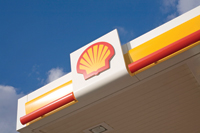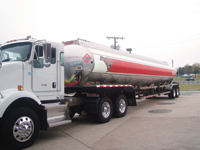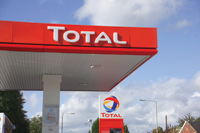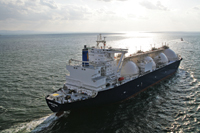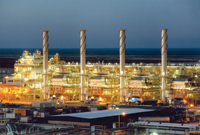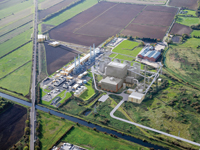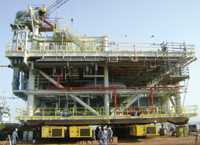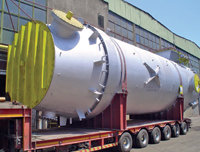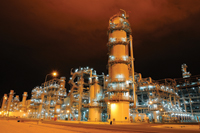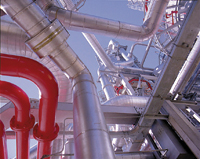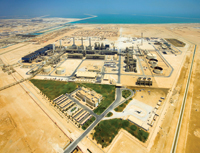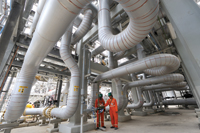
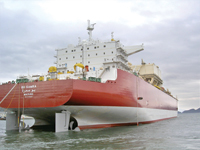 Tankers ... in short supply
Tankers ... in short supply
QATAR, the world’s biggest LNG producer is about to approve the overhaul of 45 of its largest tankers from 2012 to 2015 to burn natural gas after the decision to run them on petroleum fuel backfired when oil prices rose, senior industry sources say.
The retrofit will exacerbate a shortage of ships able to carry LNG and could stifle short-term trade at a time that demand is rising due to increased buying by Japan and other countries following the shutdown of nuclear power plants since the March Fukushima disaster.
Qatar is nearing the end of a year-long consultation on the $1 billion upgrade involving shipowners, shareholders and engine manufacturers, which was prompted by an unexpected fall in natural gas prices versus oil in recent years, according to people present at the ongoing discussions.
“Qatar wants to make a decision as soon as they can. These ships are coming around to their first scheduled five-year service,” a shipping source says.
Retrofitting is expected to begin in mid-2012. Qatar Petroleum and ship owner Qatar Gas Transport Co (Nakilat) were unavailable for comment. Some experts say the cost could be as high as $1.4 billion, assuming each retrofit costs $30 million. Exact costs will be established at a meeting between counterparties at the end of the month, the sources says.
Top energy executives at Qatar Petroleum want upgrades to coincide with the mandatory five-year servicing of its fleet, which starts next year and lasts until 2015, to minimise disruption to trade. But experts say upgrade work will nearly double the planned lay-up time of tankers to 45 days, and some estimate the overrun to be between two to three months.
Plans to carry out upgrades in a three-year window mean that between two and four ships will be idled simultaneously, depending on the duration of the work.
The LNG market is already experiencing a shipping shortage. High demand in Asia this year has drawn Atlantic Basin cargoes east and lengthened shipping times, pushing charter rates to records above $100,000 a day, up from $30,000 18 months ago.
Further shortages are expected to push rates higher, which could be passed on to utility companies in Japan and other major importing countries.
“The problem with the LNG market is liquidity. There are only five tankers available for next year (that are not already tied up in contracts). So if suddenly Qatar takes three or four of those (to replace tankers in maintenance), then rates will go up,” one broker says.
On the advice of partner ExxonMobil , Qatar decided to order tankers powered by heavy fuel oil in 2004, instead of natural gas which has turned out to be considerably cheaper, multiple sources said. Exxon is a partner in a number of LNG-producing projects in Qatar.



































































